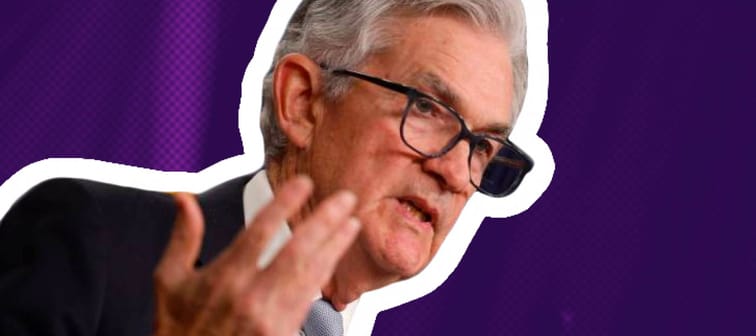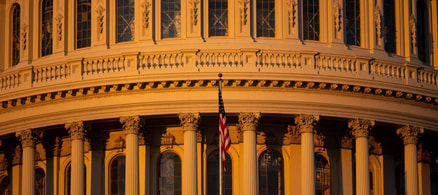Why you shouldn’t panic
The Fed is raising interest rates in order to combat persistent inflation — which clocked in at 7.1% in November, according to the latest data.
More rate increases will be on their way in order to bring inflation down to 2%. The Fed expects the rate will hit 5.1% in 2023 and a recession remains likely.
"Inflation remains elevated, reflecting supply and demand imbalances related to the pandemic, higher food and energy prices, and broader price pressures," the The Federal Open Market Committee said on Wednesday.
A recession is typically characterized by a significant decline in economic activity, rising unemployment levels and low consumer demand. While GDP rose in the third quarter of 2022 and unemployment remains low, high prices and declining real wages are increasing the likelihood that demand will drop and a recession will begin next year.
That said, recessions have lasted less than a year on average since the Second World War, and many economists are expecting next year’s to be relatively mild.
Soon-to-be retirees might have concerns — especially if the value of their IRAs has dropped with the stock market. Average retirement savings have plunged by nearly $10,000, according to data from financial services company Northwestern Mutual.
But if you take some precautionary measures to get your finances in order, you might not be severely impacted by an economic downturn.
Meet Your Retirement Goals Effortlessly
The road to retirement may seem long, but with WiserAdvisor, you can find a trusted partner to guide you every step of the way
WiserAdvisor matches you with vetted financial advisors that offer personalized advice to help you to make the right choices, invest wisely, and secure the retirement you've always dreamed of. Start planning early, and get your retirement mapped out today.
Get StartedWhat soon-to-be retirees can do to prepare
Fortify your emergency fund
During a recession, when economic activity is stifled and unemployment starts to spike, older workers tend to be at higher risk of losing their jobs compared to those in the middle of their careers.
You can prepare for this possibility by beefing up your emergency fund. Experts generally recommend setting aside three to six months’ worth of living expenses in normal circumstances.
However, if you’re barely making ends meet in the midst of rampant inflation, start with smaller savings. You can build up your cash cushion over time, but be realistic about how much you can conserve.
WATCH NOW: Suze Orman says ‘$400 can make all the difference’ in an emergency
Scoop up shares on the cheap
Although the market’s been down, this might be a good opportunity to purchase shares while they’re cheap — and benefit over the long-term.
If you’re in a strong financial position, consider building a diversified portfolio with sectors that traditionally perform well throughout economic cycles, like health care, utilities and consumer staples.
Short-term assets, like cash, prepaid expenses and short-term investments, can also help you ride out a recession. They’re meant to be used within a year, which can help you avoid tapping into your long-term investment funds.
Take advantage of low tax rates
The market downturn might actually make for a good opportunity to convert your traditional IRA into a Roth IRA.
A traditional IRA lets you grow your money tax-free until you make withdrawals in retirement. With a Roth IRA, you’ll need to pay your taxes upfront but can benefit from tax-free withdrawals in retirement instead.
So why might it make sense to convert over to a Roth IRA now? While the market’s down, your portfolio value has likely shrunk as well, which means there’s less to pay taxes on.
You’re also currently benefiting from 2017’s tax cuts — which will no longer apply by Dec. 31, 2025.
If you think you might be in a higher tax bracket in the future, consider taking on a lower tax burden now and gaining from tax-free withdrawals in your retirement.
Sponsored
Follow These Steps if you Want to Retire Early
Secure your financial future with a tailored plan to maximize investments, navigate taxes, and retire comfortably.
Zoe Financial is an online platform that can match you with a network of vetted fiduciary advisors who are evaluated based on their credentials, education, experience, and pricing. The best part? - there is no fee to find an advisor.






